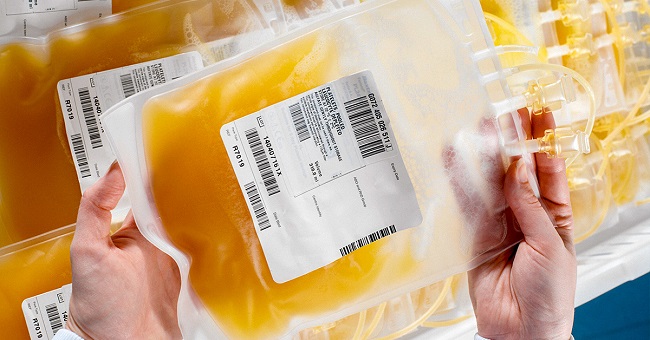The World Health Organisation (WHO) says clinical trials are underway to evaluate the effectiveness of using plasma from the blood of recovered COVID-19 patients, to reduce the severity of illness among people infected with the virus.

WHO Regional Director for Africa, Dr Matshidiso Moeti, said this in her message to mark the 2020 World Blood Donor Day (WBDD).
WBDD is celebrated every June 14 to raise awareness on the need for safe blood and blood products, and to thank blood donors for their life-saving gifts of blood.
“This approach was used by Guinea in the Ebola epidemic in 2014, prior to the availability of Ebola vaccines and therapies.
“In Mauritius, 150 people who have recovered from COVID-19 have indicated they are willing to give plasma in line with the national decision to use serum plasma therapy for COVID-19 patients in intensive care.
“The biggest challenge with this approach in many African countries, is the insufficient resources of national blood services to safely collect, process and store COVID-19 convalescent plasma in a quality-assured manner.
“However, the current pandemic is also an opportunity to improve this situation. Kenya, for instance, has allocated a portion of funding from the World Bank specifically to improving blood services during the pandemic,’’ Moeti said.
In the COVID-19 pandemic, she said the supply of safe blood was at risk, saying: “regular blood donation drives are being postponed, and stay-at-home orders and fear of infection are preventing donors from accessing services.
“Disruptions to the global supply chain also put countries at risk of shortages of critical supplies and equipment needed for blood donation and transfusion.’’
According to her, universal access to safe blood is a key component of a resilient health system and contributes to achieving universal health coverage.
“In the African Region, countries are making progress in improving access to quality-assured blood and blood products.
“In 2019, eight countries collected 10 units or more per 1000 population as recommended by WHO and 19 countries reached the target of over 80 per cent voluntary non-remunerated blood donations in line with the regional strategy for blood safety.
“At WHO, we are also exploring partnerships with Facebook to set-up a regional Blood Donations feature, and 15 countries have expressed interest in piloting this tool.
“The feature connects blood donors with nearby opportunities to donate in collaboration with approved blood banks.’’
The regional director, however, urged governments, in collaboration with blood donor associations and non-government organisations, to increase investment in blood transfusion services in line with WHO guidance.
“I wish to thank all voluntary, unpaid blood donors for the life-saving gifts they offer to communities and all the phlebotomists.
“I also thank other health workers who contribute to blood donation and transfusion services – because of your commitment, safe blood saves lives,’’ she said.
According to her, On June 14, every year, the African Region joins the global community in celebrating World Blood Donor Day, because blood donors give the gift of life, and more lives will be saved if more people volunteer to donate blood on a regular basis.
“This year we are calling on people to “give blood and make the world a healthier place” because by regularly volunteering to donate blood, we can all contribute to solidarity and saving lives.
“Safe blood is a critical resource in severe infant anaemia, postpartum hemorrhage and trauma care. It is also vital in surgeries and the treatment of malaria, sickle cell disease, thalassemia, inherited blood disorders, and AIDS.’’
By Cecilia Ologunagba
